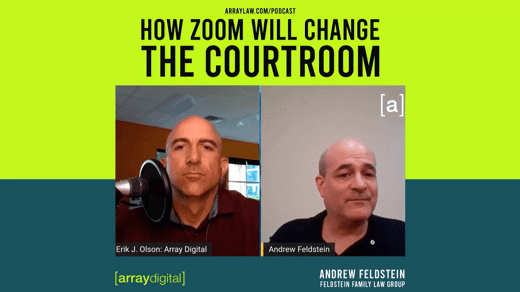Hi, my name is Anna Troitschanski and I am a lawyer with the Feldstein Family Law Group. Today I'm going to talk to you about personal loans acquired from family members during the course of a marriage and the treatment of such debts upon separation.
Loans acquired from family members during a marriage often pose a problem upon separation because one spouse frequently denies having taken the loan from the other spouse's family. In the alternative, one spouse makes the claim that the monies advanced were never meant to be a loan and were actually gifts made to the couple.
As such, the first issue that needs to be addressed when such a situation arises is whether the advance of monies by the family member is actuality a loan rather than gift. The ambiguity stems from the fact that there is often no loan documentation or a contract evidencing this transaction. Pursuant to s.4(2) of the Family Law Act, if monies are gifted to a couple after the date of marriage, this amount is excluded in computing either party's net family property. If the monies are found to be a debt, however, the amount of the loan is deducted from your assets at the date of separation and therefore works to reduce your Net Family Property. The latter may result in a reduction in any equalization payment that you may owe or increase the amount of an equalization entitlement owing to you.
It is worth mentioning with respect to gifts, however, that a gift may only be excluded from a Net Family Property computation pursuant to the rules if the gifted monies can be traced and provided that those monies have not been put towards the matrimonial home. As discussed in the other blogs on our website, once gifted money is put into the matrimonial home it cannot be deducted even if the money came from a gift or an inheritance. In addition, if the gift has been spent then you cannot exclude it. However, if it is a loan that you owe to your parents then it reduces your Net Family Property and in some cases the parent may gift the amount of the loan back to their child after the resolution of your family law matter.
Going back to loans, in the absence of clear documentation showing that such monies were intended to be a loan, it is important that we evaluate the criteria one must satisfy to successfully rebut the presumption that the advances were a gift. Particularly, case law provides a non-exhaustive list of factors the court considers when determining whether an advance of money is in fact a loan rather than a gift. Some of the factors include:
1. whether there are any documents evidencing a loan;
2. whether the manner for repayment is specified;
3. whether there is security held for the loan;
4. whether there are advances to one child and not others, or advances of unequal amounts to various children;
5. whether there has been any demand for payment before the separation of the parties;
6. whether there has been any partial repayment; and
7. whether there was any expectation, or likelihood, of repayment.
A combination of the above noted factors is taken into account when trying to establish whether the advance monies in dispute are in fact a loan. The outcome, therefore, is dependent on the facts of the given matter and whether they weigh in favor of a loan or not.
If you would like to learn more about the treatment of personal loans upon separation, you can visit our website at www.separation.ca. If you need legal advice about your own situation, please call us at 905-581-7222 to schedule a free initial consultation. Thanks for watching.




